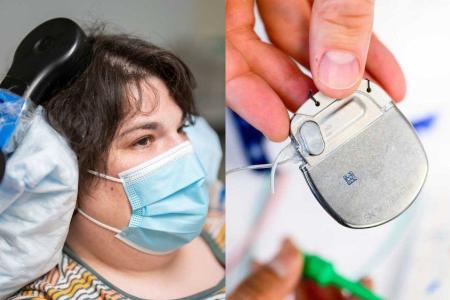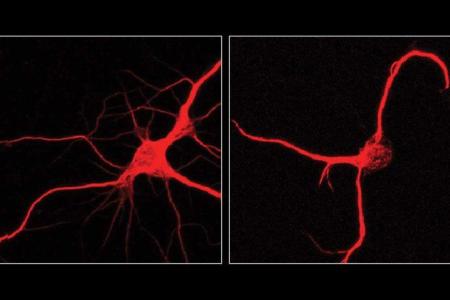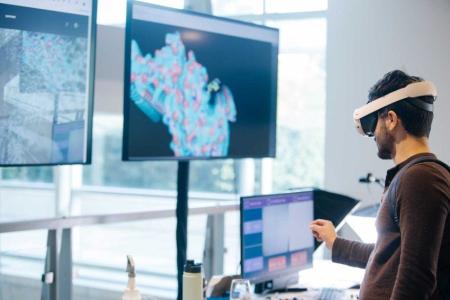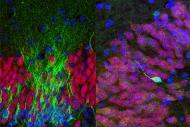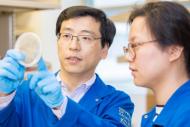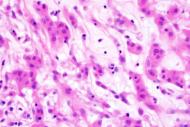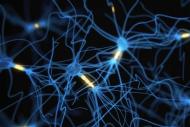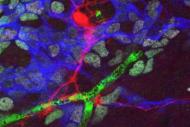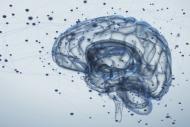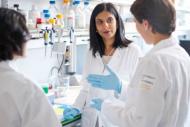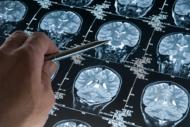A study of patients with early Parkinson’s disease found that groups with lower levels of vitamin B12 faced on average a more rapid acceleration of both motor and cognitive symptoms.
UCSF scientists have shown that in the human hippocampus neurogenesis declines throughout childhood and is undetectable in adults.
UCSF received more than $593.9 million in federal funding from the National Institutes of Health in 2017 for research across multiple health-science arenas at the University.
New research led by David Solomon, an assistant professor in the Department of Pathology at UCSF, provides much-needed targeted treatment options for patients whose tumors cannot be surgically removed.
Loss of an enzyme that modifies gene activity to promote brain regeneration may be partly responsible for age-related cognitive decline, according to new research in laboratory mice by UCSF.
Many researchers have long assumed that most stem cells in the body can produce new cells indefinitely, but new research at UCSF shows that this is not the case in the brain.
UCSF researchers have identified the buildup of one brain chemical as a key culprit behind age-related learning and memory impairments. Tuning levels of this chemical in the worm C. elegans, they could delay and even reverse the declines of old age.
Denal Dubal, an associate professor of neurology at UCSF, thinks we can use the science of aging to help stave off these neurodegenerative diseases.
UCSF researchers have discovered that the brain’s ability to regulate body weight depends on a novel form of signaling in the brain’s “hunger circuit” via antenna-like structures on neurons called primary cilia.
UCSF neurologists have discovered monthly cycles of brain activity linked to seizures in patients with epilepsy.

